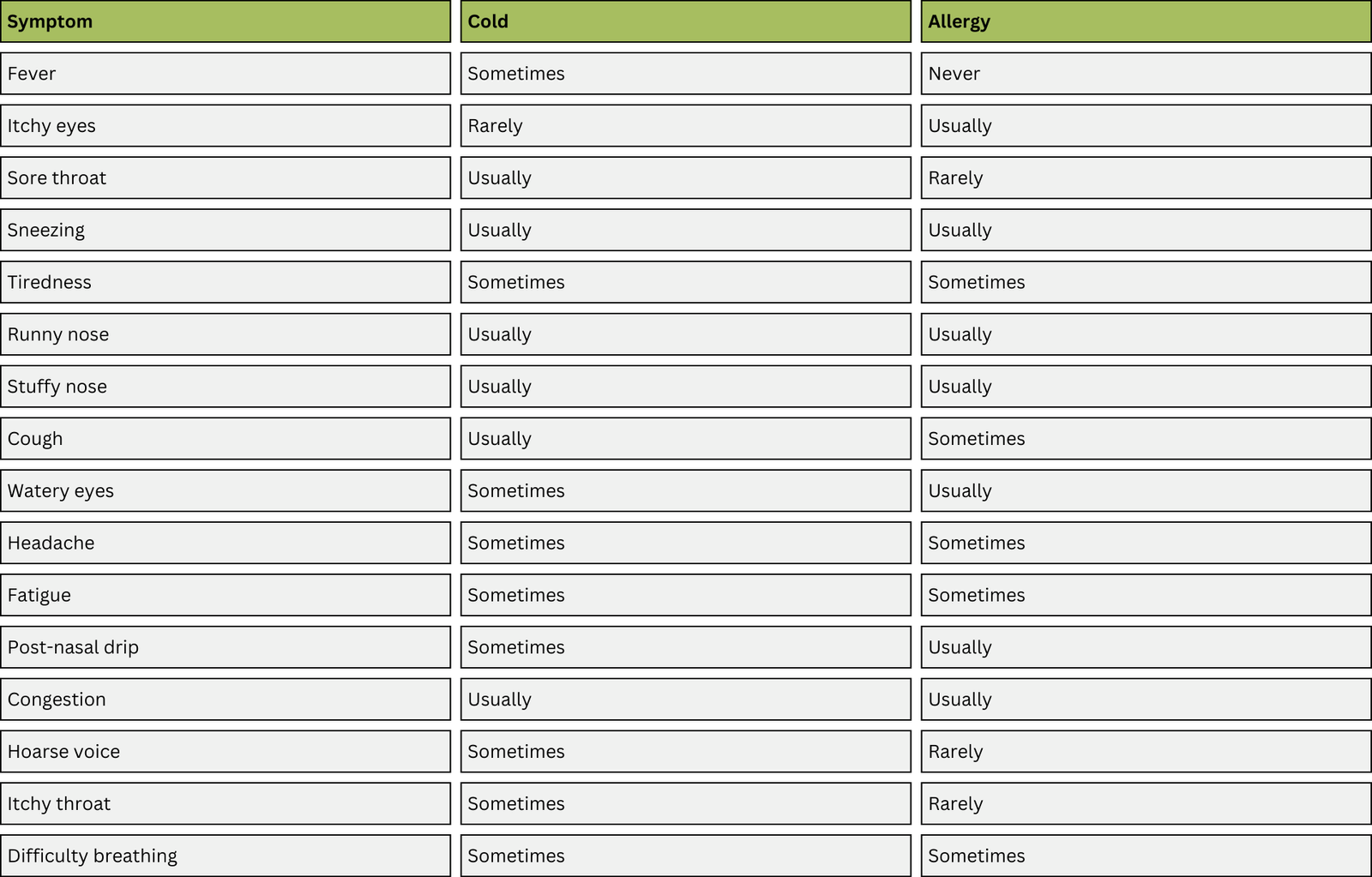Understanding Your Symptoms: Is It a Cold or Allergies?
Welcome to our comprehensive symptom checker, a tailored tool designed to help you discern whether your symptoms are more indicative of a common cold or seasonal allergies. This guide will walk you through how the tool works, the rationale behind the questions we ask, and how your answers translate into our final assessment.
How the Tool Works
Our symptom checker is structured around a series of questions that you answer by adjusting sliders or selecting options that best match your current experience. These questions cover a range of symptoms commonly associated with either colds or allergies, such as the nature of your mucus, the onset of symptoms, and whether your eyes are itchy or not.
The Science Behind the Questions
1. Onset of Symptoms: Allergies often hit suddenly upon exposure to allergens like pollen, whereas cold symptoms tend to develop gradually.
2. Nature of Mucus: Clear, thin mucus typically suggests allergies, while thick, colored mucus often indicates a cold.
3. Eye Symptoms: Itchy, watery eyes are a hallmark of allergies. Cold-related eye discomfort is usually less intense and not accompanied by the same level of itchiness.
4. Fever: The presence of a fever almost exclusively suggests a cold, as allergies do not cause body temperature to rise.
5. Seasonality: Symptoms that appear or worsen during specific seasons are likely related to allergies.
6. Duration: Prolonged symptoms are characteristic of allergies, especially when exposure to allergens continues.
Calculating Your Results
After you submit your answers, our tool calculates scores for both cold and allergy likelihoods based on the weighted responses. Each symptom’s impact on these scores has been carefully calibrated according to medical insights:
- Highly indicative symptoms like fever significantly influence the outcome toward a cold.
- Common symptoms that occur in both conditions, such as sneezing, are weighted to reflect their lesser diagnostic value.

Interpreting Your Results
The tool’s final assessment offers a calculated suggestion on whether your symptoms align more closely with a cold or allergies. It also provides actionable advice on managing your symptoms and when to seek professional medical advice.
A Note on Accuracy and Professional Advice
While our symptom checker is designed with medical accuracy in mind, it’s important to remember that it’s not a substitute for professional medical diagnosis. If your symptoms are severe, persistent, or unclear, consulting with a healthcare provider is always the best course of action.
Conclusion
Our symptom checker is a powerful starting point for understanding your health better and making informed decisions about symptom management. Whether you’re dealing with seasonal allergies or a cold, knowing what you’re up against is the first step toward feeling better.


 visit our website at www.domainworx.com
visit our website at www.domainworx.com